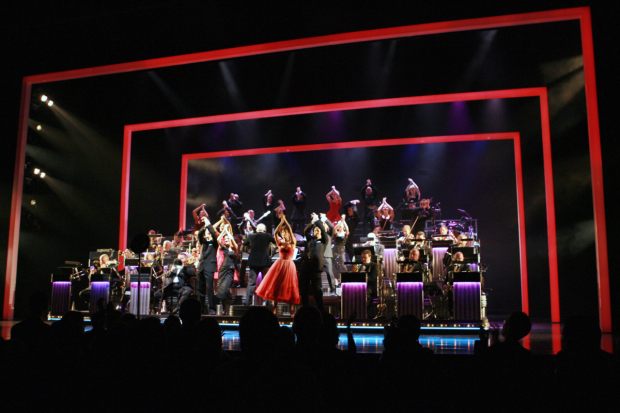
© Dan Wooller for WhatsOnStage
Theatre is grounded in a communal joy – that near-tangible link between performer and punter, where empathy and entertainment spin a merry dance around an auditorium. So it's only natural that, in the fizz and excitement, spectators might let loose a bar or two and lend their voices to the production.
Which isn't great if you're the one sat next to a wannabe-minstrel, right? The thought was brought home last week after buying a friend tickets to a smash-hit musical, one of the ones that has been wowing across the world over the last few years.
Messaging her later to find out how it was: "Amazing!" was the response, my friend even using WhatsApp's bold text formatting, "though someone behind me was singing the whole way through. We were hearing their version of the show as much as the performers on stage!"
Yikes – no one wants to fork out what is nowadays steep amounts of money to hear those sat nearby singing a few beats ahead – often just to prove that they know all the lyrics (or all the colours on Joseph's coat). It's "The Wizard and I", rather than "The Wizard, half the audience and I", after all. "On My Own" should be sung, well, exactly. If loud enough, these moments can even distract those on stage.
Yes, everyone's excited that the theatre's back but for the sake of fellow ticket holders, it can be a sign of respect to stay quiet and let your love of the show brim over during the applause and ovation.
But is it ever okay to sing along at a show? Some hit productions know full-well that their fans love a sing-along – hence why the likes of Bat Out of Hell and Six have planned such performances. Other times, shows write in a "sing-along" section (usually during the curtain call) to end the night on a high, while the likes of Rocky Horror see a sing-along as essentially a prerequisite for attendance.
Sometimes, a communal sing-song can be a rousing moment – recently chanting along to Frankie Meredith's May Queen at the Roundabout brought on a small tingle of unity. If utilised well, there's a shining interconnectivity that can, in the right moments, linger with you long after a show. One of the most well-attended types of production, pantomime, also encourages this form of participation.
A big quandary is jukebox shows: returning to the glee-ful Jersey Boys earlier this summer meant hearing dozens of audience members singing or humming along to "Beggin'", "Oh, What A Night" or "Can't Take My Eyes off You", though all were successfully drowned out by the company's (especially fresh talent Ben Joyce) magnificent vocals.
It does make something of a difference when these tunes are better known: their catchiness is pre-ordained – it transcends the boundaries of musical theatre fan-dom and into the wider world of music appreciation. But where is the line drawn? When can Louise sing out?












